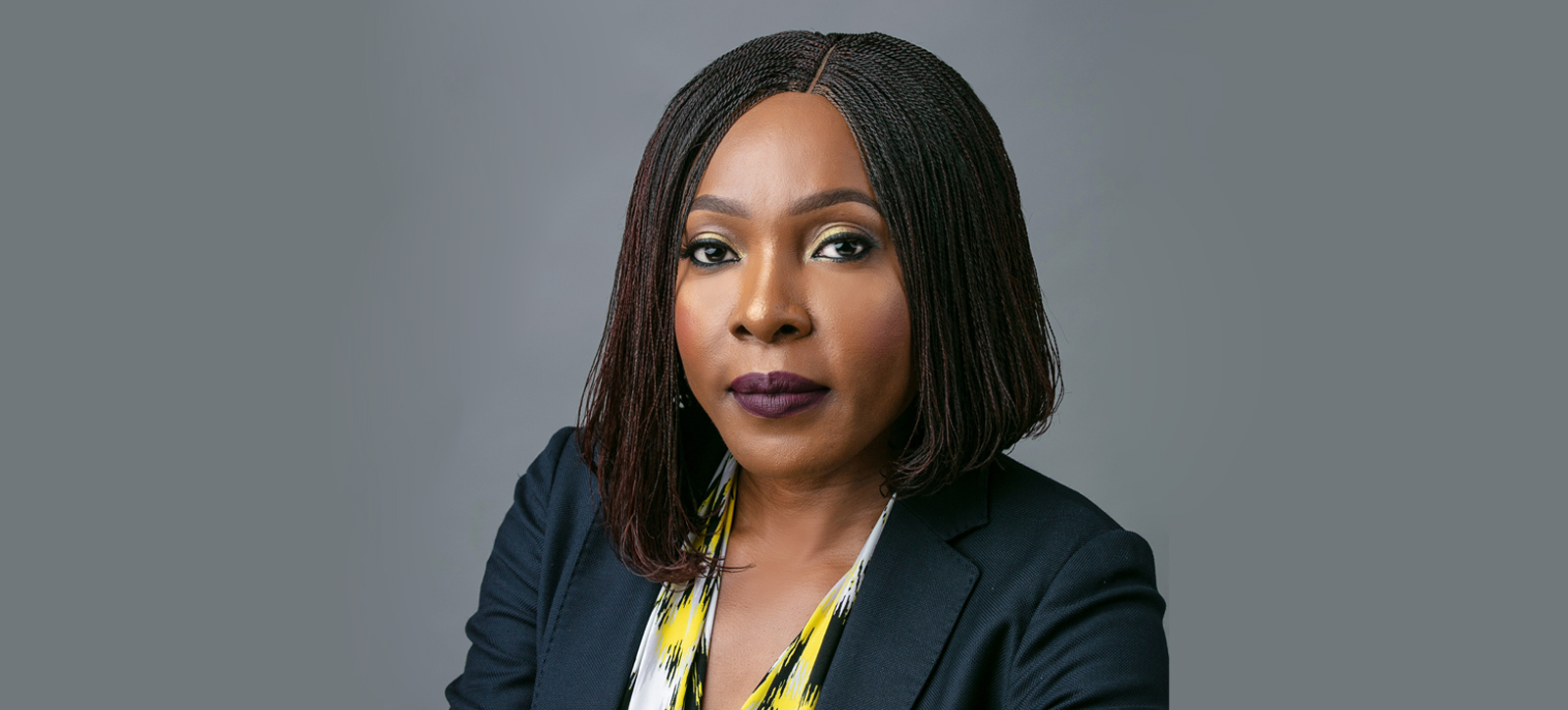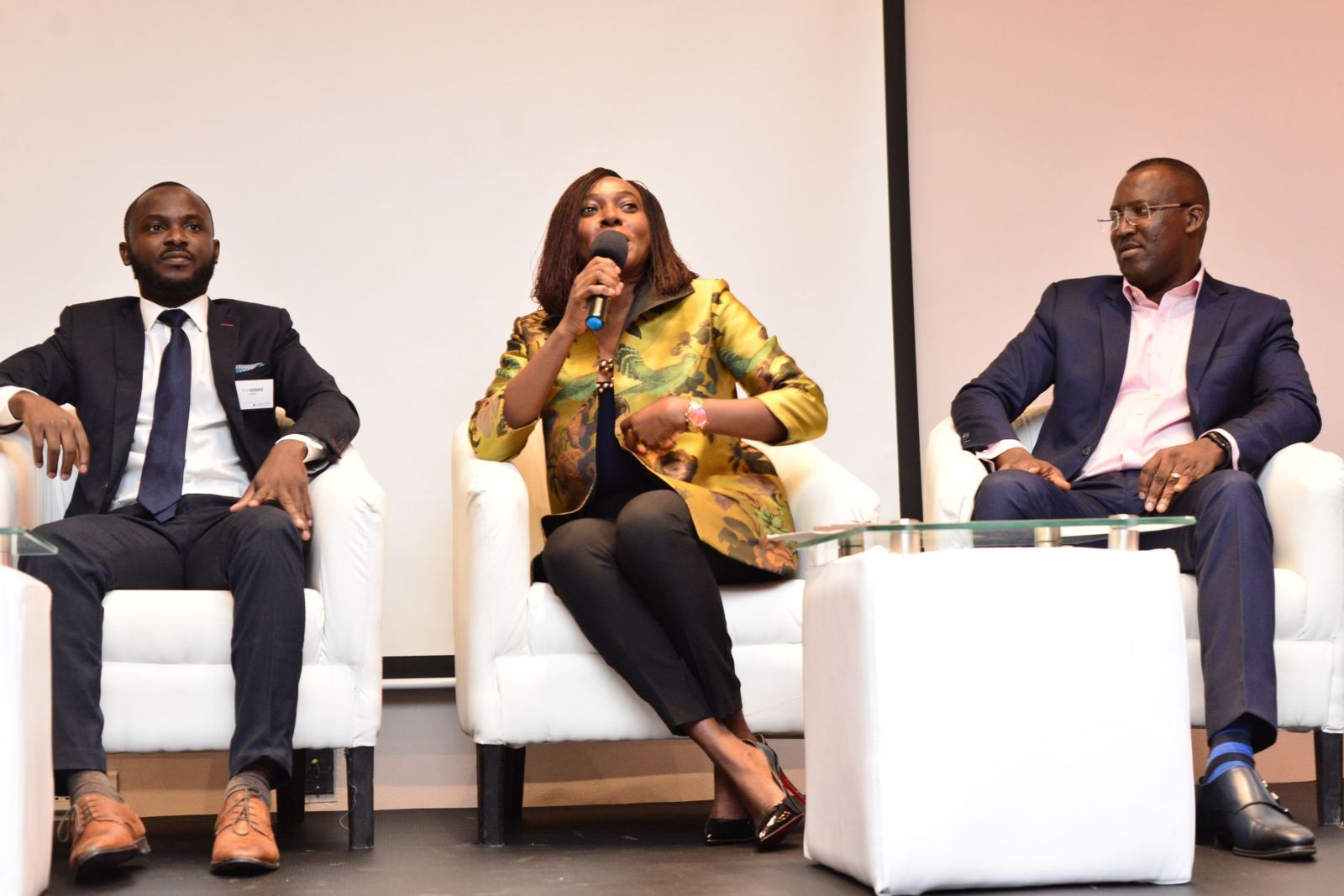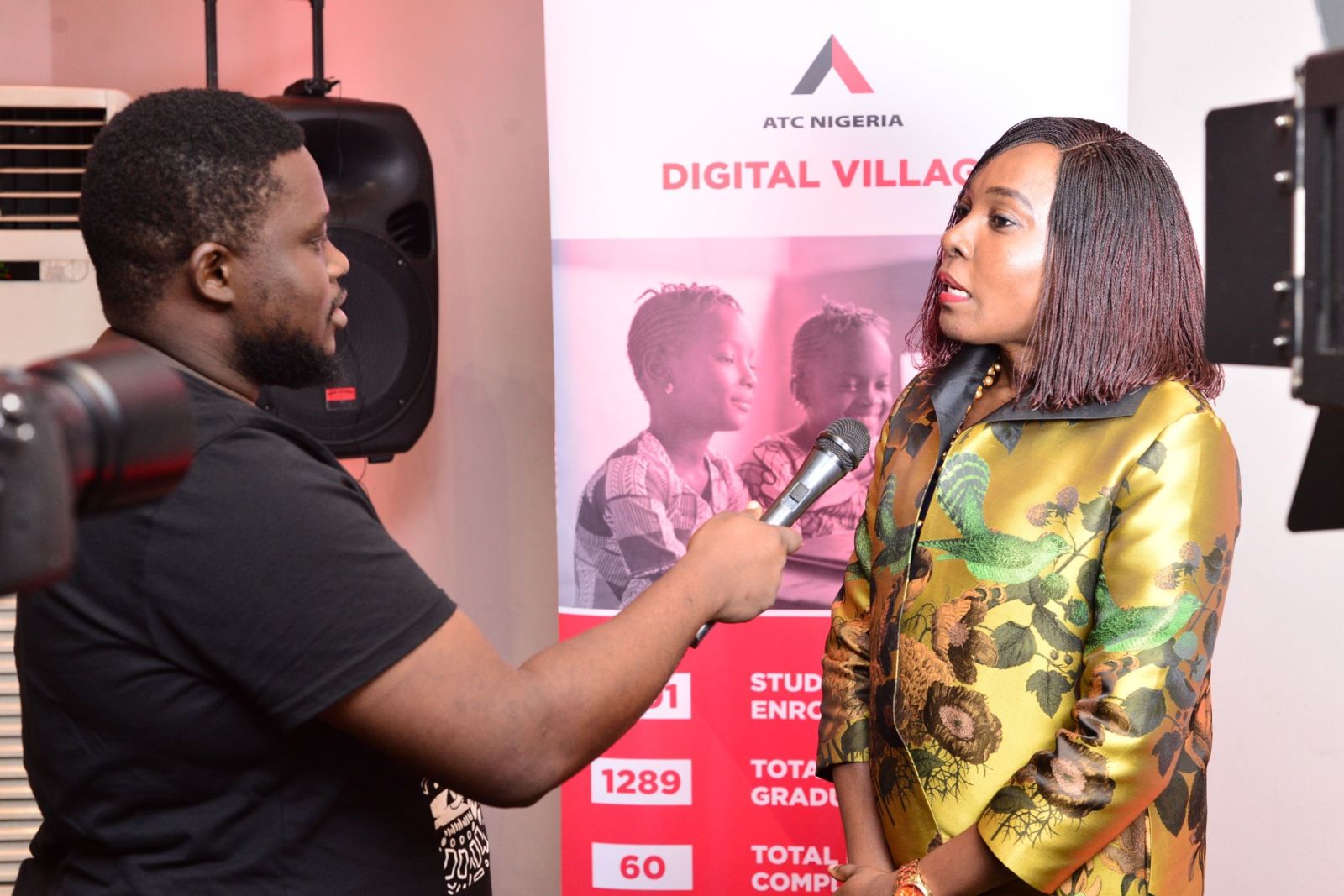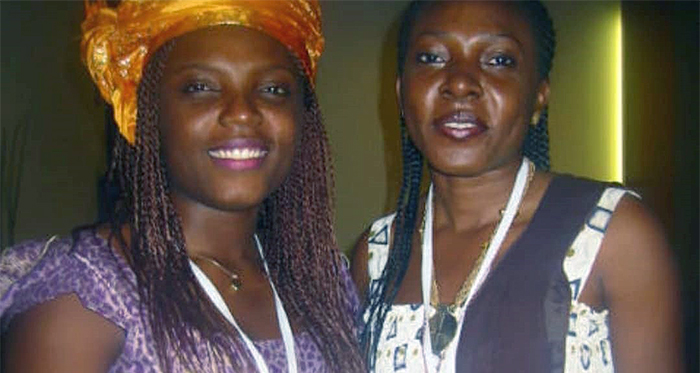
- Jane Egerton-Idehen rose from slums of Lagos to run a $200m client account
- The Nigerian founded Women & Career to help women reach senior positions
- Egerton-Idehen is lobbying to help women combine families and careers
- She overcame the shooting of her close friend to help women across Africa
When Jane Egerton-Idehen was sent to boarding school by her parents she was ecstatic. For the first time in years she was to have three meals a day.
Growing up in the Ajegunle slums of Lagos, Jane was used to having just one meal a day. Her family struggled in poverty after her father’s bakery collapsed due to Nigeria introducing a ban on importing wheat in 1986.
Despite seeing their family business in ruins, Jane’s parents were determined to give their four children the best start in life. They were passionate that education could make a difference, but schooling beyond primary level has to be paid for in Nigeria.
This meant selling all the baking machinery. But even that was not enough. Sometimes they could not afford to send all their children to school, and Jane and her brothers had to stay at home for periods. But Jane was clever: smart enough to gain admission at 12 to go to a Government-subsidised boarding school.
“That was my first break,” says Jane, who is now Country Manager for West Africa for London-based telecommunications firm Avanti. “I had subsidised fees, but my father still had to get a loan to pay for the rest of the fees. It meant moving to the eastern part of the country, away from my family, but I was excited. We could barely eat one square meal, so when I saw I would be getting three meals a day I was so happy – a prayer answered.”
It was a life-changing experience for Jane. Surrounded by children from more privileged backgrounds opened up a world of possibilities beyond just survival.

“They had parents who were doctors or engineers,” says Jane. “They wanted to do so many things; they were so ambitious, and so it helped me to dream.
“In the holidays I would go back home. When my parents’ friend came round and said their son was studying engineering but was finding it really difficult, I immediately thought, ‘I want to do that’. I am attracted to challenges and just hearing how difficult it was inspired me.
“That school was a good platform for me. It taught me to aspire. Hanging around with smart kids rubbed off on me and I wanted to get the best results possible – it didn’t matter that I came from the slums.”
But she was discouraged by friends and relatives, who argued it was a career for men and would be too risky. She would be throwing away her big opportunity on a pipe dream, they argued, so she went to study industrial chemistry at the University of Nigeria.
“I was miserable,” says Jane. “I was one of the top on the admission list in my first year, but I knew it wasn’t for me. Fortunately, I was able to switch to engineering after the first year. It was a big lesson for me – you are the owner of your dreams. From then on I have always been very determined and focused: don’t expect other people to validate your dreams. When I am driven to do something I stay focused on that dream, no matter what anybody else says – it is OK to be different.”
In a class of more than 100, Jane was one of just 10 women studying engineering. Missing a year meant she could not gain a first-class honours, but she graduated into a role with satellite firm Spar Aerospace before moving to IT giant Ericsson.
In a male-dominated world, Jane rose through the ranks to be in charge of Ericsson’s largest client account in Nigeria, worth $200 million, before leading its major accounts in Ghana, Liberia and West Africa.
Jane, who was headhunted in 2017 by Avanti to take over its sales division in West Africa and Nigeria, has published a book on her rise from the slums to become one of the most influential businesswomen in Africa. Be Fearless not only tells her story, but champions women’s rights as she looks to help more females rise into senior management positions.

“When I started my career fixing satellites, on roofs all hours of the day and night, I was the only woman on the team,” says Jane. “My career has taken a lot of hard work and sacrifices, like not seeing my husband that much because my children and I lived in Ghana while he worked in Nigeria, but it has allowed me to give back to my parents.
“One of the first things I did when I was made manager at Ericsson was to move my parents out of the slums. I rented them a house in the good part of Lagos – it was something I was very proud of, to say thank you for the sacrifices they made for me as a child.”
Taking on a senior managerial position at Ericsson meant Jane had to expand her business knowledge to include subjects like strategy and finance. An Executive MBA at Warwick Business School helped her bridge the gap between her technical knowledge and the language of Ericsson’s other departments.
“It was hugely helpful,” says Jane. “To close those deals you had to understand the strategy of your client. I was applying a lot of the skills from the MBA to my work.”
It also helped Jane with her other position: encouraging more women into engineering. She had co-founded Women in Engineering in Nigeria in 2004 with her friend Clementina Saduwa.
“We would give talks at secondary schools and hold conventions for school girls to dispel all the myths and show them it is a career for women, it is just about solving problems,” says Jane. “We would get a lot of fan mail, saying ‘we want to be like you’. It is better now for women, but there is still a long way to go.”

Tragically, in January 2007, at the age of 29, Clementina was shot dead by robbers as she walked home. An annual award has been established in her name by the Institute of Electrical and Electronics Engineers recognising outstanding women engineers.
“It was a huge shock and difficult to process,” says Jane. “It was after losing my friend that I began to realise I needed to stop running around manically and do something I was passionate about – that is, getting young girls to want to do STEM [science, technology, engineering and mathematics].
“I was already mentoring a lot of women at Ericsson and even outside the company. It had grown to the point where I had 300 women dialling in from all over the world for the forums I held.
“So I decided to combine all of this and set up Women & Career. It looks to help women promote themselves, and give them tips on planning and building their career. The problem in the STEM field is not access – we have a lot of women at the entry point – but at mid-career, when they start getting married and having kids, women start to disappear and that is at the management level.
“We need to do more to ensure women can stay in their career. We show them role models, give them motivation to keep going and educate them on how to lead. If we have more women empowered and educated, social issues can be addressed, as well as it leading to diversity of thought and experience in organisations.”
From the slums of Lagos to inspiring women across Africa, it has been an empowering journey for Jane that could motivate many more to follow her path.




 X
X Facebook
Facebook LinkedIn
LinkedIn YouTube
YouTube Instagram
Instagram Tiktok
Tiktok